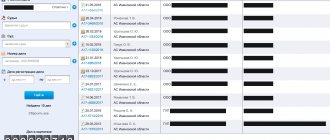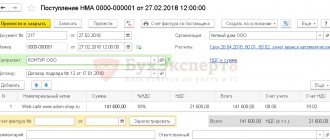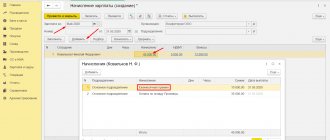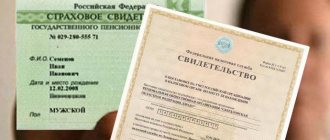Reasons for refusal
The Federal Tax Service may not accept a tax reduction only if, as a result of a desk or field audit of the taxpayer, its specialists have identified an underestimation of the calculated VAT or the unlawful use of tax deductions. This is stated in Articles 88 of the Tax Code of the Russian Federation, 89 of the Tax Code of the Russian Federation, 171 of the Tax Code of the Russian Federation and Article 173 of the Tax Code of the Russian Federation. In the case of a claimed VAT deduction, it will be possible to prove an understatement of the tax amount during a desk audit only if you request documents from the taxpayer’s counterparties. In these same cases, there is a chance to recognize the claimed deduction as unlawful.
The most common reasons for this are the following.
- The taxpayer does not comply with the conditions for deductions regulated by the Tax Code of the Russian Federation. For example, he presented as a basis for reducing VAT an invoice issued with errors or corrections, or missed the deadline established for deducting VAT received from the supplier.
- The taxpayer claimed a deduction for an invoice issued by an unreliable counterparty.
And if in the first case the taxpayer’s mistake is not so difficult to prove and, as a rule, it is indisputable, then in the second situation the cancellation of the VAT reduction entails a whole “bouquet” of unpleasant consequences. Tax authorities, as a rule, claim that all goods (work or services) purchased from such a counterparty were in fact purchased not from him, but from another person at a lower price, or were even manufactured by the taxpayer organization itself. That is, the entire transaction is considered fictitious, with all the ensuing consequences. The organization may be accused of both malice and lack of due diligence when concluding an agreement with a shell company. Exercising due diligence when choosing a counterparty is a way to protect against denials of VAT deductions.
A special situation is when the tax service does not want to accept a VAT deduction in the absence of registration or information about the registration of the taxpayer’s foreign counterparty. There is still no official position on this matter, since the Tax Code does not provide any clarification on this issue. It is noteworthy that at one time the Plenum of the abolished Supreme Arbitration Court once declared a refusal on such grounds illegal. But later, the Arbitration Court of the Moscow District, in a resolution dated April 16, 2009 N KA-A40/1324-09 in case N A40-61824/06-98-345, came to the conclusion that the organization does not have the right to claim VAT for reimbursement, since its legal status foreign counterparty was not confirmed. In a controversial situation, tax officials managed to find out that the address of a foreign buyer of Russian goods in the United States is used by other persons, and the counterparty company itself did not and does not conduct business. The documents for the foreign economic transaction were completed without violations.
There are cases when tax authorities directly refuse to accept a VAT return with the amount of tax refundable. They call representatives of the organization and recommend refusing to reflect certain transactions in the report in order to exclude the transfer of budget funds. Each taxpayer has the opportunity to evaluate such actions of inspectors independently and make an informed decision. After all, as already mentioned, the courts do not always recognize the defeat of inspectors.
Errors in registration
When justifying the refusal to provide a VAT refund, tax inspectors often do not recognize the fact of registration due to incorrectly executed documents.
Thus, inspectors may consider acts of acceptance and transfer of inventory items unacceptable if they do not contain a seal. However, the imprint is not a mandatory requisite when preparing primary documents - this is precisely the indication contained in the album of unified documents, approved by Decree of the State Statistics Committee of the Russian Federation dated December 25, 1998 No. 132. In addition, taxpayers themselves can develop their own forms of documents, which may lack any optional details.
Tax authorities also refuse to allow developers to recognize VAT deductions during the phased capitalization of work on a construction site based on forms KS-3 and KS-2. In the opinion of the Ministry of Finance, which is expressed in its letters dated 10/14/2010 No. 03-07-10/13 and 03/05/2009 No. 03-07-11/52, these documents are not the basis for recording the completed volume of work during construction in progress, and serve only as a basis for calculations.
At the same time, there is also positive judicial practice. For taxpayers who want to exercise their right and are ready to defend their case in court, the conclusions drawn by the decisions of the Federal Antimonopoly Service of the Moscow District dated 04/19/2012 in case No. A40-77285/11-107-332 and 04/07/2011 No. KA-A40 may be useful. /2227-11 in case No. A40-60156/10-35-331.
Accounting for property through account 08, and not directly at 01, is also, according to the tax authorities, a basis for refusing to apply a VAT deduction. This position is set out by the Russian Ministry of Finance in letter dated January 29, 2013 No. 03-07-14/06. When challenging a tax authority’s decision to refuse to apply a deduction, one should turn to positive judicial practice in resolving similar issues. It is worth familiarizing yourself with the following court decisions: FAS Volga-Vyatka District dated 05/13/2014 in case No. A11-3359/2013, FAS Moscow District dated 08/21/2013 in case No. A40-134549/12-108-179, FAS North-Western District dated January 27, 2012 in case No. A56-10457/2011, FAS of the Ural District dated August 24, 2011 in case No. A07-18288/2010.
Arbitrage practice
One of the fundamental documents that judges should be guided by if there is a challenge to refusals to approve and agree on VAT is still Resolution of the Plenum of the Supreme Arbitration Court of the Russian Federation dated July 30, 2013 N 57. Paragraph 49 states that according to the norms of Article 176 of the Tax Code of the Russian Federation for a tax return for VAT, in which the payer’s right to reimbursement of this tax was declared, the general rules for conducting desk tax audits and considering the materials of these audits, provided for in Articles 88 of the Tax Code of the Russian Federation, 100 of the Tax Code of the Russian Federation and 101 of the Tax Code of the Russian Federation, apply. This means that tax officials should not pay any special attention to such reports. But in practice they almost always show it.
The same document states that if the Federal Tax Service refused to refund VAT, the entries for which seemed suspicious to it, then, according to the norms of paragraph 3 of Article 176 of the Tax Code of the Russian Federation, such a conclusion, even if the refusal to deduct is partial, must be stated in a separate decision. At the same time, the tax service must make a decision to hold (or refuse to hold) the taxpayer accountable for committing a tax offense. It is allowed to challenge these two decisions only in conjunction, since the Supreme Arbitration Court of the Russian Federation states that when considering such complaints, courts must proceed from the fact that these decisions cannot be examined and interpreted in isolation from each other, including when appealing them. These decisions of the Federal Tax Service enter into force at the same time, are appealed jointly and are paid by state duty as one requirement of the taxpayer.
So, let’s look at what arguments tax officials find to convince the court to take their side and recognize the refusal to refund VAT as justified: judicial practice is contradictory.
Tax benefits affect the deduction
A more recent position on this matter was expressed by the Supreme Court of the Russian Federation in a review of judicial practice approved by the Presidium of the Supreme Court of the Russian Federation on December 20, 2016. The judges considered a situation where an organization, by decision of the Federal Tax Service, was denied a VAT refund due to the fact that, while carrying out air transportation of passengers and baggage in the period under review, the company purchased ground handling services for aircraft, which, according to the provisions of Article 149 of the Tax Code of the Russian Federation, are exempt from VAT, therefore, it did not have the right to include tax amounts received from suppliers of such services as deductions, regardless of their allocation in invoices issued by counterparties.
Unjustified tax benefit
Another circumstance in which the arbitration court will side with the inspectors will be indisputable evidence that the reason for claiming a deduction was the taxpayer’s desire to receive an unjustified tax benefit. This conclusion was made in the resolution of the Arbitration Court of the North Caucasus District dated March 28, 2016 N F08-755/2016. In a controversial situation, tax inspectors refused to reduce the amount of VAT because the counterparty taxpayer did not have the necessary conditions to achieve the results of the declared economic activity. Although a supply agreement was concluded between the two organizations for the purchase of tools and equipment, which was attached to the case file along with invoices, delivery notes, waybills and other documents, it turned out that all this was a fiction. The supplier organization did not have managerial and technical personnel, fixed assets, production assets, warehouses and vehicles. Based on this, the judges concluded that the taxpayer’s business transactions with its counterparties were unrealistic.
Material on the topic Which company will the tax authorities consider a one-day company?
The so-called counterparty role is another trump card of the Federal Tax Service when refusing VAT refunds. Although tax authorities are not always able to prove such circumstances, they often become the reason for a negative court decision for the payer. Tax officials do not hide the signs of such counterparties. Moreover, the Federal Tax Service issued an order dated February 11, 2016 N ММВ-7-14/ [email protected] , in which it listed all the grounds for conducting inspections related to the dubious place of registration of organizations. In particular, inspectors pay attention to information included or already included in the Unified State Register of Legal Entities (USRLE), and if reasonable doubts arise about their accuracy, they cancel the tax reduction. The judges of the Federal Tax Service support such decisions if there is sufficient evidence, as, for example, the Arbitration Court of the Moscow District did this in a ruling dated January 23, 2017 in case No. A40-51878/2016.
The arbitrators indicated that the organization that wanted to challenge the refusal to deduct VAT entered into contract agreements with, and the primary documentation contained false information because it was signed by unidentified persons. The leaders of the organization, which were listed in the Unified State Register of Legal Entities, explained that they have no relation to this company. In this regard, the court concluded that the plaintiff did not show the due degree of prudence and caution when choosing contractors, and his actions were aimed at obtaining unjustified tax benefits.
There is only one conclusion from these and other court decisions: before concluding an agreement, it is necessary to check the counterparty. Most often, the amount of the unrefunded VAT itself is almost less than the fines that will have to be paid after the court makes a decision in favor of the tax service.
Results
The main reasons why the tax service denies taxpayers a VAT refund include:
- errors in the preparation of accounting documents;
- special interpretations of those checking the validity of registering goods;
- application of deductions in relation to non-VAT-taxable transactions.
But today, in most cases, the reasons for refusing a refund for this tax are formal and far-fetched.
To substantiate his legal position and protect the right to apply a VAT deduction, the taxpayer should go to court. You can find more complete information on the topic in ConsultantPlus. Free trial access to the system for 2 days.






